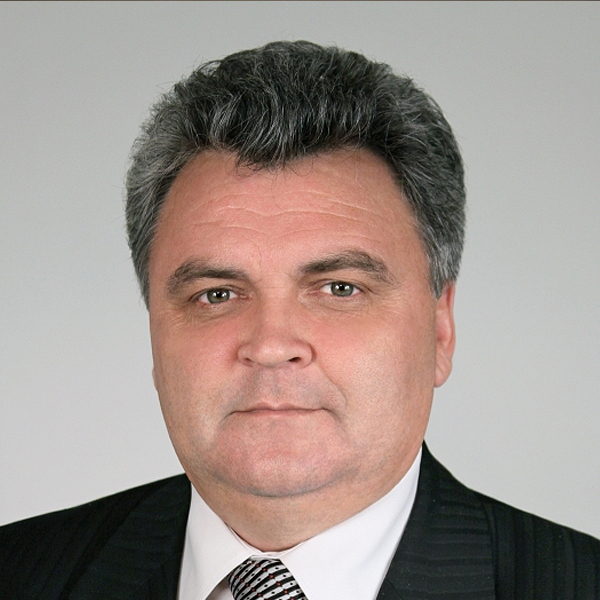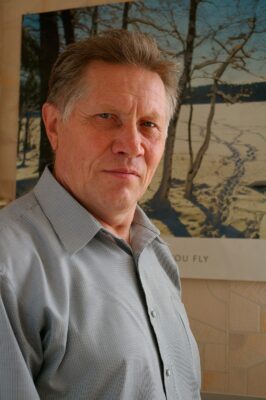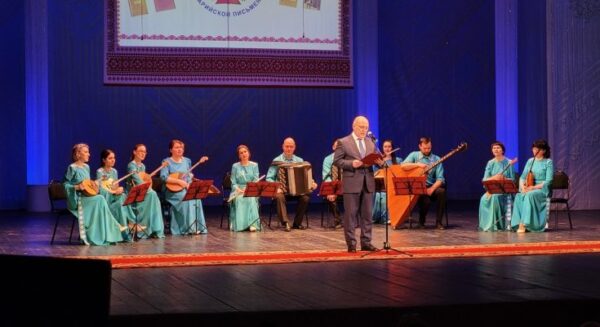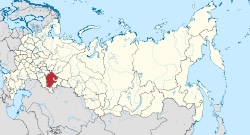“Finno-Ugric space: reality and contemporary challenges” – Speech by Pyotr Tultayev, Chairman of the Association of Finno-Ugric Peoples of Russia, at the 2nd Forum of Finno-Ugric Peoples.

Before quoting Tultaev’s speech here, it is necessary to open up the background of the forum. The 1st Forum of Finno-Ugric Peoples took place in Izhkar (Izhevsk) in early June 2021, shortly before the World Congress of Finno-Ugric Peoples – as an alternative to the World Congress of Finno-Ugric Peoples scheduled to take place in Tartu in June 2021. The forum was convened by the Association of Finno-Ugric Peoples of Russia (AFUN), whose council had recommended in April of the same year not to participate in the congress planned for Tartu. In practice, the recommendation meant not only that some Finno-Ugric peoples were forced to participate virtually, but also that they were prevented from doing so. The Association hoped that the World Congress in Tartu would fail. In reality, however, the World Congress in Tartu turned out to be legitimate, i.e., most representatives of the Finno-Ugric peoples took part in the Congress in Tartu.
However, almost none of the publications of the Finno-Ugric peoples living in the Russian Federation published the materials, resolutions, press releases, etc. of the 8th World Congress of Finno-Ugric Peoples in Tartu.
Of course, to what extent the splitting of the Finno-Ugric movement was a decision of the Association (AFUN) itself is a question of its own. Rather, it is clear that the Association was guided by the relevant guidelines of the Russian Federation’s Agency for National Affairs, which in turn received them from the Putin administration. These directives were that, at a time when the Russian Federation, for its own geopolitical interests, is seeking to exacerbate conflicts with the European Union and NATO, the Finno-Ugric peoples are cooperating and this cooperation must end. In the past, Russia had already broken up cooperation between the Slavic peoples, as well as between the Turkic peoples. The interests of the state, the imperial spirit would say, outweighed the linguistic and cultural cooperation of kindred peoples of different language groups.
It is clear that the press in the Russian Federation is not free, and especially not the press of Finno-Ugric peoples, because it is fully subsidised and controlled by the state. Therefore, it is understandable why the materials of the World Congress of Finno-Ugric Peoples were not published and why the holding of the Congress in Tartu in 2021, the issuing of a Finno-Ugric postage stamp and a two-euro coin in Estonia were suppressed. But what should we do, should we keep silent about the Forum of Finno-Ugric Peoples in Izhevsk and what was said there? On the contrary, Fenno-Ugria thinks that we should talk about it and write about it in order to understand what is going on in the national politics of our neighbouring country, what concerns and joys surround them. We also need to see how imperial ideology is destroying the cooperation and the aspirations of the Finno-Ugric peoples to remain themselves. How contradictions are fuelled and demagogy is used, creating an environment of half-truths and lies. We also have to consider here the context of what and how it is possible to discuss in Russia today. All of the above is reflected in Pyotr Tultayev’s presentation at the II Forum of Finno-Ugric Peoples, which took place in Saransk in the Republic of Mordovia on 16-19 August.
The speech is aimed at showing how Finno-Ugric peoples are strengthening Russia’s unity, are in solidarity with the Russian President and, having formed national battalions (around 300 men in total), are fighting as part of the Russian army against Ukraine. The main concern, however, is the ethnic intelligentsia of the Finno-Ugric peoples, which is talking about violations of the rights of the Finno-Ugric peoples and ethnic discrimination in personnel policy. Some of them even blame the Russians! There are also separatist sentiments among ethnic Russians who have either left or fled Russia.
It is only in the final part of the speech that Tultayev starts to talk about how, quite unexpectedly, the teaching of Finno-Ugric ethnic languages has been reduced to 1 hour per week in the 9th grade, and to 2 hours in primary school. He also complains about the low level of funding and says that the number of copies of books in the national languages has fallen. For example, 8 Udmurt-language books were published in 2022. The lack of digitisation of Finno-Ugric languages is also worrying, but this is because Estonia, Finland and Hungary blame Russia for this. He concludes that the main task of the Finno-Ugric Association is to strengthen the unity of the Russian people, and that the Finno-Ugric peoples owe their gratitude to the Russian language and the state.
This was the summary of the speech of the leader of the Finno-Ugric peoples, which we reproduce here in full. Anyone can draw their own conclusions from this, but we would point out how much of his speech was devoted to the contradictions between the US and the sovereign (Finland, Estonia, Hungary) and stateless Finno-Ugric peoples, without giving specific examples, except for the manifestation of separatism, such as the creation of Idel-Ural. Yet how little attention he paid to the concerns of the Finno-Ugric peoples, mentioning only a few, and how little and in what form he spoke of solutions, let alone a word about the rights of the Finno-Ugric peoples. What was missing, however, was any criticism of the authorities. And, finally, this basic point: the representative organisation of Finno-Ugric peoples in the Russian Federation is grateful for the Russification.
Pyotr Tultayev:
Dear friends, dear colleagues!
Each of our peoples is unique in its own way, with centuries of history and a distinctive culture. At the same time, we are all part of the Russian people, regardless of our nationality and religion.
Today, our country faces new foreign and domestic policy challenges. I note that the Finno-Ugric peoples of Russia have taken a stand that confirms their commitment to strengthening the unity of the Russian people and their solidarity with the political course of President Vladimir Vladimirovich Putin.
Many Western politicians have repeatedly tried to exploit the ‘problems of the Finno-Ugric peoples’ by raising the issue of ‘oppression’ of Russia’s small peoples.
Today, in fact, the United States and its Western allies are openly talking about plans to dismember the Russian state, including by actively exploiting the national factor.
In the case of the Finno-Ugric peoples, we see a targeted action to discredit Russian national policy and incite nationalist sentiments. Radical nationalist organisations are being set up in Europe, not without the help of the authorities in these countries, to speak on behalf of the Finno-Ugric peoples of Russia under the guise of a commitment to democracy. In various international forums, representatives of self-proclaimed organisations are making accusations of violations of the rights of representatives of our peoples and of discrimination on the basis of ethnicity in the personnel policies of the regions.
In 2018, the public movement ‘Free Idel-Ural’ was formed on the territory of Ukraine, declaring its goal to create several independent states on the territory of the Finno-Ugric and Turkic regions of the Russian Federation. The media project ‘Idel.Realii’, promoted by the ideologists and participants of this organisation, is part of the non-profit independent media corporation ‘Radio Free Europe’, funded by the US Congress.
At the end of 2022, an ‘independent national congress’ (1) was held in Estonia, which brought together a few dozen delegates: former Russians, now citizens of the USA, Ukraine and Estonia, who have long forgotten and viciously hate their homeland. The event was also attended by the Deputy Secretary General of the Estonian Ministry of Foreign Affairs and other representatives of the Estonian authorities. Having once again accused the Russian authorities, they announced the need to create a state on a national basis, which, in their opinion, should include the territories of the Republic of Mordovia, the Chuvash Republic, Penza, Ulyanovsk oblasts, parts of Nizhny Novgorod, Ryazan, Samara oblasts. They declared the current status of the regions illegal.
It is known that the ‘Free Idel-Urals’ project, developed by the United States and the special services of the West, also envisages the creation of the Mari, Udmurt, Chuvash, Tatar and Bashkir nation-states on Russian territory.
For the participants and their ideologists in such projects, all is clear. They are public enemies of the state – only they can think and act like that. But what is worrying are some of the representatives of our nations, especially among the national intelligentsia, who, in a frenzy of unbridled criticism, under the guise of concern for the preservation of language and national culture, express at least sympathy and tacit support for such anti-Christians, and contribute by their actions (whether consciously or not) to fomenting hatred and discord between nations. Claiming absolute truth, they continually accuse us of violating rights and insult those who disagree with them. Russians are sometimes blamed for all problems related to national languages and culture. Absurd!
In my opinion, in such cases, things should be called by their right names: don’t give them a false sense of their rightness. Whose mill are you pouring water into? That is the question! Representatives of the authorities, we, members of social movements, people who are simply not indifferent to the fate of our country and our people, should not hesitate to tell such truth-tellers that they are wrong. Blaming other nations, fomenting discord between nations is unacceptable, dangerous and criminal!
In the current confrontation with the West, the best response to ‘unfriendly countries’ is to demonstrate the internal unity and cohesion of our national peoples. This is confirmed by the volunteer units fighting in the armed forces of the Russian Federation – such as the Mordovian units ‘Siyazhar’, ‘Aralai’ and ‘Kaval’; the units of the reserve battalions of Idin, Poltysh, Akpatyr from the Republic of Mari El; the units of Onego and Laadoga from the Republic of Karelia; ‘Italmas’, ‘Vormon’ from the Republic of Udmurtia; the unit ‘Komi’ from the Komi Republic; the battalion ‘Yugra’ from the Khanty-Mansi Autonomous Okrug.
At a time when our country is constantly under the ‘eye’ of enemy intelligence services and the extremists they support, it is crucial to pay attention to potentially conflict-sensitive factors, to take measures to identify them and to eliminate them in a timely manner. In the Finno-Ugric republics, in areas densely populated by Finno-Ugric peoples, inter-ethnic conflicts do not occur. This does not mean, however, that we do not have problems with ethno-cultural policy.
Russia’s diversity of cultures and nationalities is not a weakness, as Western politicians think, but on the contrary, it is one of its greatest strengths. Our people have always demonstrated unity by standing up to the foreign enemy. It is no coincidence that the President of the Russian Federation, Vladimir Putin, stressed at a meeting of the Council on National Relations in May this year that the Russian national identity had strengthened. ‘The more sanctions are adapted to us, the more slander, the higher is the parameter of our overall consolidation’, the President noted.
Addressing the issues of preserving and developing the languages and cultures of many of the peoples of our country depends to a large extent on the qualitative study of their mother tongues and literatures in educational institutions at different levels. There is progress in this area. Whereas 10 years ago there were no textbooks on Finno-Ugric languages and literature in the federal textbook list (2), the situation has changed. Textbooks for most Finno-Ugric languages are available for primary school (grades 1 to 4), while textbooks for Komi and Udmurt are available for primary school (grades 5 to 9). For secondary school (grades 10-11), however, there are textbooks only in Udmurt language and literature. Textbooks in Mari for secondary schools are being prepared for publication. There is progress, but there are many outstanding problems.
The reasons for this situation vary, but experience shows that much depends on the position of the staff in regional education ministries. To solve this problem, in our opinion, it is necessary: 1) to create special departments in the regional ministries of education to deal with issues of the national-regional component in education and upbringing; 2) to have a plan of applications for the creation of educational and methodological literature in the national language and literature approved by the regional government; 3) to organize work with the authors of textbooks on contractual terms, paying for the work done in a timely manner.
The reduction in the number of lessons in mother tongue and literature due to the introduction of the five-day school week was unexpected. In the basic federal curriculum, these are now two hours a week instead of three, and only one hour in grade 9. Compared with previous years, the number of lessons has been reduced by two and a half times. The mother tongue is not just a means of communication, it is the spirit of a nation, a cultural expression, one of the main signs of its existence. We therefore ask the representatives of the authorities responsible for education to ensure that the basic curriculum maintains the three hours per week allocated to mother tongue and literature.
It is probably also necessary to take into account the national factor when selecting candidates for a number of leading positions, especially in the fields of culture, education and public policy.
The lack of financial support for the publication of books, magazines and newspapers in national languages is a cause for concern. But even worse, Finno-Ugric language resources are poorly presented on the Internet.
Digitisation, presenting the languages of all Finno-Ugric peoples on the Internet as equals – I consider this to be one of the main modern tasks. First of all, we are talking about publicly accessible electronic dictionaries, automatic spell-checkers, search engines, public repositories of information material, identification systems, educational software packages localised in Finno-Ugric languages. Solving this problem will make it possible not only to preserve the intellectual wealth accumulated over many centuries, but also to develop it by attracting young people.
This is largely a political issue. Our critics and opponents from Estonia, Finland and Hungary have repeatedly accused us of this problem. In the context of international confrontation, against the background of the events in Ukraine, our enemies are using the weak representation of the Finno-Ugric languages of the Russian Federation in the Internet space as a political opportunity to speculate, for example, on the violation of our peoples’ rights.
Of course, the regions are working on the digitisation of languages. But, to be honest, it leaves a lot to be desired. Public organisations and public authorities need to take more active and concrete steps. Funding, the existence of a programme, the definition of a unified client and coordinator are prerequisites. We need action plans for the digitisation of our peoples’ languages and their representation in the IT environment.
The reality now is that many of our languages are generally obsolete in the IT world.
One of the components of Russia’s ethno-cultural diversity is the fiction of Finno-Ugric peoples.
According to the Ministry of IT Development, Information and Mass Communications, the number of titles of books and brochures published by Russian publishing houses in 2022 and their total print run remained practically unchanged compared to 2021.
However, book publishing in the languages of the Russian Federation has decreased. Thus, in 2022, books were published not only in Russian, but also in 50 of our state’s national languages. And only eight per cent of the total number of titles are Finno-Ugric. There were 25 titles in Mari, 14 in Komi, 9 in Mordvin, 8 in Udmurt and 8 in Mansi.
However, there were practically no translation books.
Translation practice is not part of the core curricula of higher education institutions in national republics today. There is no professional training for translators. The exception is the M. Gorky Institute of Literature, which employs teams of translators of languages of Russia – Tatar, Bashkir, Buryat, Udmurt and Yakut.
This process needs to be refreshed. If we are not talking about opening up new disciplines in universities, we could at least consider the possibility of bringing the discipline of translation into the existing curricula of our universities’ philology departments by creating student research laboratories for translation studies. It would be possible to create professional retraining programmes ‘Translator of literary works (from the languages of the peoples of the Russian Federation into Russian)’ and vice versa. It will be necessary to involve in the implementation of these programmes not only university lecturers, but also representatives of the Writers’ Union and staff of educational and cultural institutions.
The future of the Finno-Ugric peoples should of course be connected to supporting and strengthening science. Nowadays, special demands are being placed on science, because in the context of the various manifestations of globalisation, there is an urgent need to develop reliable mechanisms for protecting their national characteristics – culture, language, social and spiritual values, attitudes towards man and nature. However, I would like to emphasise that, in my opinion, research should not be carried out merely for the sake of theoretical constructs, but should be of an applied nature.
In preparation for the Forum, I devoted a lot of time to studying national scientific research. I have to say that we have a very powerful scientific potential at work at both federal and regional level. And, of course, the conclusions, recommendations, proposals of the researchers are in principle serious, useful and required by the authorities.
But at the same time, there is often a sense of a formal approach to the subject under study and, consequently, to recommendations. Conjecture of documents and facts, reports for the sake of reports.
Take, for example, monitoring the state of inter-ethnic relations. There is no shortage of these studies, everything seems to be right on the surface. But the question is another: how truthful, effective, professional and useful are they, including for the people who deal with these issues on the basis of their responsibilities and mandates. To what extent do the findings and recommendations of the monitoring help to anticipate and prevent conflict situations that arise? Unfortunately, the answer is not always positive.
In our opinion, studies related to the resource potential of mother tongues for the development of their social functions are relevant in today’s context. Given the fact that Finno-Ugric peoples live in territories where several languages are used, it is necessary to study the mechanisms of their simultaneous functioning and influence. Answers need to be sought to the following questions: 1) In which areas of social life are they used? 2) what is their relationship in terms of status and functions? 3) under what conditions and in what forms does bilingualism and multilingualism arise? 4) how can the development and functioning of language be regulated? Particular attention should be paid to the study of the preservation and development of the languages of Finno-Ugric peoples living outside the autonomous communities.
There is a great need for a comprehensive scientific study of the processes taking place in young people’s environment; the study of the interests of the younger generation, the analysis of their mother tongue, their national culture. Questions of the formation of a nationwide civic identity among young people seem to be very important.
The Forum has a dedicated section on youth policy issues. This is a very important topic, especially in the current circumstances. It is useful and interesting to hear young people discuss current issues. It is understandable if the generations do not see eye to eye on everything. The important thing is to seek, to move. I look forward to an interesting debate.
Dear colleagues!
There is a lot of talk at the moment about adapting the strategy of state national policy. Indeed, change is needed: life is not standing still, new realities and challenges have emerged.
But I don’t think the changes should be revolutionary. The State National Policy Strategy, as the most important document of state planning, proved its viability and played a huge role in strengthening the unity of the Russian nation.
And its main tasks: strengthening the unity of the Russian people, preserving ethno-cultural and linguistic diversity – are the most important for our country, for our peoples.
In conclusion, I would like to reiterate that, in the face of today’s challenges, it is of particular importance to work with common interests, close cooperation and communication between authorities, social movements and organisations. All of us, regardless of nationality, are united by our love for our country. We are different. But all of us have one country – Russia! But what unites the country, all our nations for centuries, is the Russian people, the Russian language. Which, of course, deserves our gratitude!
Dear friends!
I wish you all successful and productive work on the forum!
(1) The First Congress of the Erzya people took place, Tultayev does not want to talk about the Erzya and the Moksha, for him they are Mordvins.
(2) In Russia, textbooks are centralised and must be approved in Moscow, i.e., listed.


